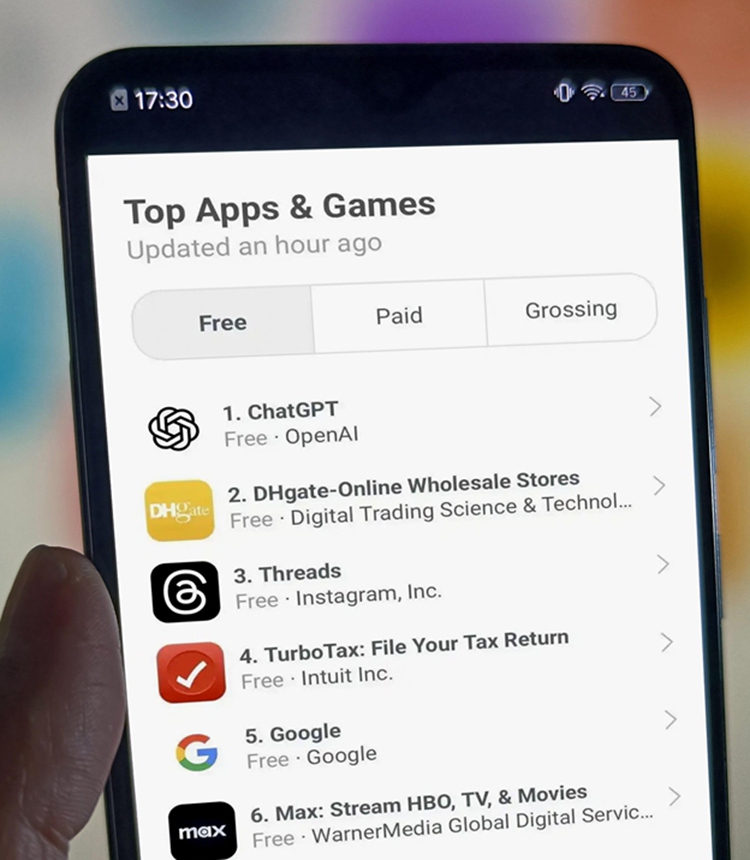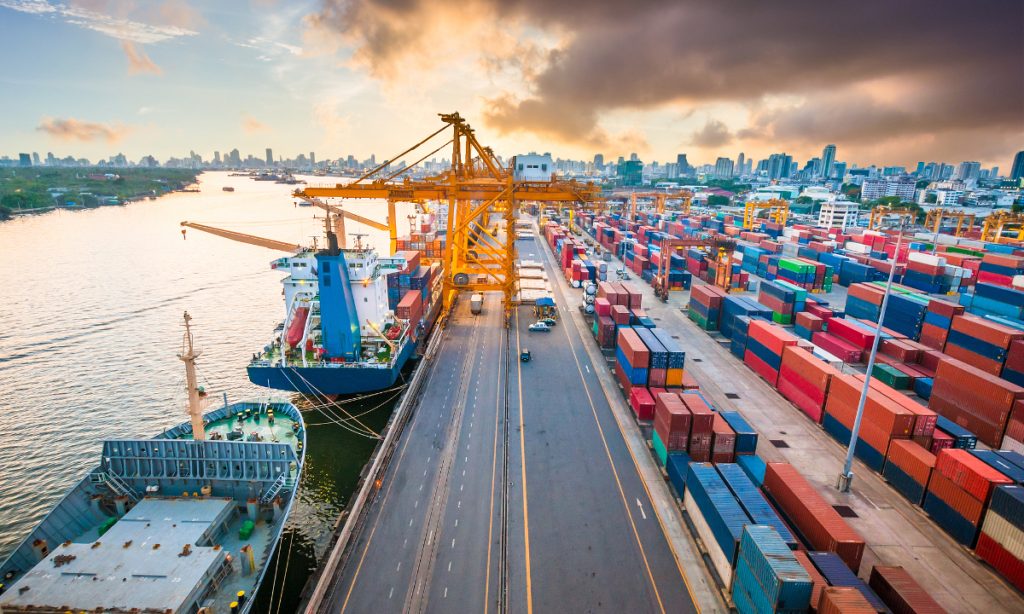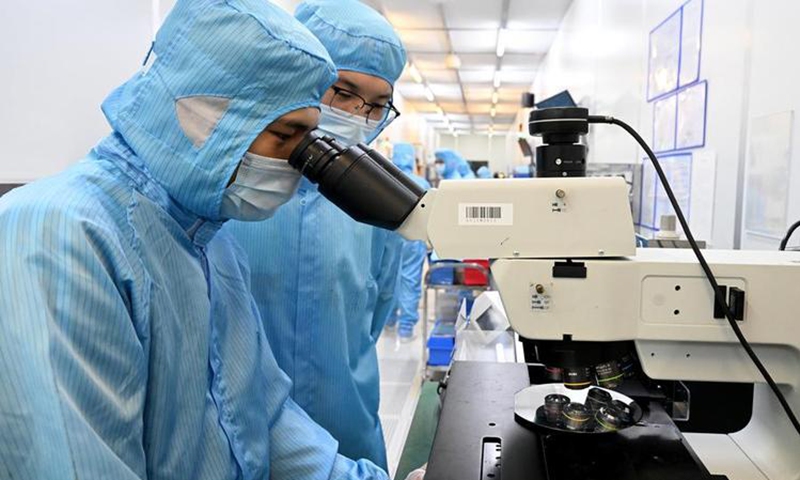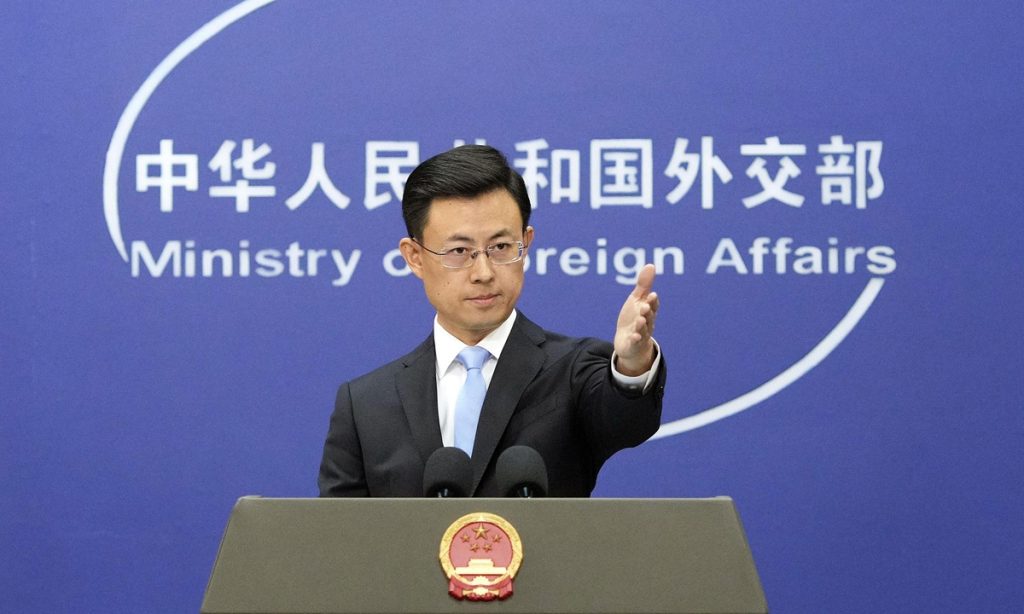A 'typical' day on duty for China Coast Guard officers at China's Huangyan Dao
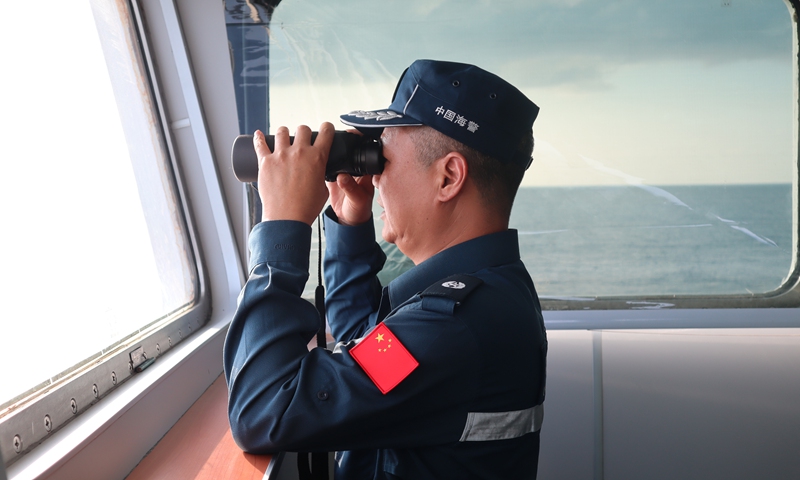
Editor's Note: What defines the ordinary? And what makes it great? For the China Coast Guard (CCG) officers stationed at Huangyan Dao, the ordinary lies in their quiet, steadfast watch; the greatness lies in the mission and responsibility they shoulder. These heroes guarding the nation's maritime borders hail from all corners of the country. They are husbands, fathers, sons, and brothers—playing the same familial roles and bearing the same emotional ties as any of us. Yet they are also extraordinary. They have aligned the course of their lives with the defense of the nation's maritime frontiers, sacrificing their "small self" to serve the "greater self."
Recently, the Global Times spoke with Gaolan formation under the third bureau directly subordinated to the CCG. They spoke with those from the Gaolan, Wanshan, and Hebao vessels about their daily lives and service in what they call the "ancestral sea." Amid the vast blue skies and seas at the southernmost tip of the motherland, and in the face of storms, solitude, and longing for home, these officers have forged with their passion and loyalty an invisible "Great Wall at sea."
Gaolan Vessel:On azure sea, the national border lives in heart of every coast guard law enforcement officer
China Coast Guard law enforcement officer Wang Zongtie aboard the Gaolan awoke promptly at 6:30 am . He looked out from his cabin window: a fiery red sun rose above the sea horizon, casting a shimmering golden hue over the rolling waves. He wasn't admiring the sunrise over the waters near Huangyan Dao but, as a result of years of professional habit, was observing sea conditions and monitoring nearby passing vessels.
After washing up and straightening his uniform, the lean officer conducted a full inspection of the ship—from the bridge, known as the ship's "brain," to the engine room, the "heart," and onward to the fore and aft decks and the galley.
Since the establishment of the third bureau directly subordinated to the CCG in 2019, the Gaolan vessel has actively carried out its mission of rights protection and law enforcement, guarding the maritime frontiers. It has participated in operations such as stationing at islands and reefs like Huangyan Dao, regional fisheries enforcement, offshore oil and gas platform inspections, and maritime rescue missions.
On the Gaolan, officer Wang Zongtie, born after 1975, is considered a legend. Whenever he is mentioned, fellow officers stand tall and speak with reverence: "He's a true hero—brave and wise!" In 2014, Wang was honored with the title of national hero for defending the border due to his outstanding performance in China's border and coastal defense work.
But Wang is not the only hero on board. Many of the Gaolan's unsung heroes deeply impress the younger generation of Coast Guard law enforcement officers. Among them is 54-year-old Chen Hongmao, who was transferred from China's former fisheries administration system. He joined in 1994, tasked with offshore duties to safeguard islands and reefs in the South China Sea. Over the past 31 years, he has spent most of his time at sea—a true veteran "guardian of the sea." From his early days vomiting at sea while working, he has transformed into "Uncle Mao," a respected figure among the crew.
"In the late 1990s, foreign aircraft flew over our heads almost every day. Sometimes we wished we had a bamboo pole to swat them down! However, we have our own shipborne drones now. It won't be long before they can fly around Huangyan Dao." Chen recalls his early days on reef duty with emotion. "Back then, our fisheries administration ships were small and had no water purifiers. Freshwater was rationed, and when it rained, the whole crew rushed onto the deck to collect rainwater—for bathing, laundry, and everything else."
In the vast expanse of the sea, generation after generation of "guardians of the sea" have dedicated their youth to the azure waters at the southernmost frontiers of the motherland.
Wen Mujian was among the first Coast Guard law enforcement officers aboard the Gaolan in 2019. He got married last year. He mentioned his new wife with a smile, saying, "When we were dating, I dreaded having an argument before heading to sea—it would ruin the entire trip. Now, when I go on missions, she's no longer worried as before. She tells me that when we're defending Huangyan Dao, the Party and the country are our strongest support."
As the sun fully rises into the sky and two seagulls soar above the white wake carved by the Gaolan cutting through the sea, Wang gazes toward Huangyan Dao, his eyes are sharp and resolute: "There may be no visible national border gate at sea, but that border gate lives in the heart of every coast guard law enforcement officer."
Wanshan Vessel: devoting limited life to an unlimited coast guard career
At noon, Coast Guard law enforcement officer Qiu Canhui from the CCG vessel the Wanshan arrived at the stern deck to begin the routine patrol duties . Not far away, the reefs of Huangyan Dao sparkled.
Qiu told the Global Times that what excited him most was patrolling the waters around Huangyan Dao in a law enforcement vessel. The waves created by the boat on the azure sea looked like a white dragon, with the surrounding seawater in a dreamy blue-green color, crystal clear to the bottom, and the dark shadows were the reefs.
The 27-year-old Coast Guard officer said, "Over the past two years, the ecological environment of Huangyan Dao has recovered well. During low tide, you can see schools of fish, corals, and giant clams."
"If I hadn't joined the CCG, I would never have had the chance to witness such magnificent seas," Chen Donghua, a youth from the Yi ethnic group in the Daliang Mountains of Southwest China's Sichuan Province, is equally awed by the vast beauty of the South China Sea. In his native language of Yi ethnic group, his name is Jike Donghua, and he happens to be a cousin of popular singer Jike Junyi.
From a young age, Chen dreamed of defending China's frontiers. Four years ago, he resolutely joined the CCG and has since experienced many personal firsts: his first voyage, his first bout of seasickness, and his first glimpse of Huangyan Dao.
"I crossed 'thousands of mountains and waded through countless rivers' to get from the Daliang Mountains to Huangyan Dao," he said. Although he only returned home last year for the Yi ethnic group's traditional New Year—the first time in four years—he remains proud of his service. "One family's reunion may be missed, but it brings peace to thousands of others."When he showed his family photos of the sunrises and sunsets over Huangyan Dao, they were genuinely proud of him.
At present, the mission of the Coast Guard law enforcement officers on board the Wanshan vessel is to exercise routine jurisdiction over Huangyan Dao, safeguarding the country's territorial sovereignty and maritime rights and interests. Since the promulgation of the baselines of the territorial sea adjacent of Huangyan Dao in November last year, the third bureau of the CCG has intensified its patrol and vigilance in the territorial sea of Huangyan Dao and its surrounding waters. In just the first quarter of this year, except for the necessary shore visits for resupply, the Wanshan vessel has been at sea almost continuously.
Far from land and with limited supplies, the Wanshan vessel undertakes duty missions that can last for dozens of days, battling wind and waves while also enduring the "triple-high" environment of high temperature, high salinity, and high humidity. In addition, there are no signal base stations near Huangyan Dao, so the Coast Guard officers can only rely on satellite phones to communicate with the outside world.
They have to overcome the sense of being "cut off from the world." To this end, officer Zhou Haiyan and Zhou's colleagues have designed a badminton court that is "scaled down proportionally." During breaks, this small badminton court is packed with Coast Guard officers eager to show off their skills.
The Wanshan vessel is equipped with a library, a gym, a video editing studio, and other facilities. Qiu has become versatile on the Wanshan. He is passionate about photography and has taught himself photo editing and video editing skills. Qiu participated in the drone operation training organized by the Coast Guard, becoming one of the vessel's first certified drone pilots.
Qiu then successively trained four or five "apprentices," and thus the drone pilot team on the Wanshan vessel expanded. Qiu said that drones can not only assist in reconnaissance of maritime and land situations but also provide video evidence. For the Wanshan vessel to carry out routine law enforcement patrols, drones are like adding wings to a tiger.
Amidst the flow of the waves, the Coast Guard officers on the Wanshan vessel steadfastly stand their ground at the southernmost end of the motherland, day in and day out, yet never feel bored or weary. Zhou, who has a deep understanding of this, said, "For us, dedicating our finite lives to the infinite Coast Guard undertaking is the ultimate happiness!"
Hebao Vessel: territorial sea baseline of Huangyan Dao provides stronger legal support for law enforcement
As it was approaching 6 pm, the setting sun bathed the horizon in a warm red glow, while waves nearly three meters high crashed relentlessly against the hull of the Hebao Coast Guard vessel. Despite the constant jolting, officer Gao Feng remained focused on the bridge, issuing bilingual warnings—in Chinese and English—to a nearby foreign vessel.
"This is the China Coast Guard. Your vessel has entered the contiguous zone of Huangyan Dao, the People's Republic of China. Please comply with relevant international conventions and Chinese laws and regulations. Navigate in accordance with the law."
Only after the foreign vessel moved away did Gao finally breathe a sigh of relief—though he quickly refocused and returned to his duties. He noted that such close-range standoffs occur almost daily. Even at night, he rarely gets deep sleep, often waking to check the navigation repeater in his cabin to monitor the ship's current position, heading, and speed.
The Hebao is a relatively small vessel with high maneuverability, serving as the "first line of defense" in law enforcement operations around Huangyan Dao. According to Gao, the responsibilities of Hebao's Coast Guard officers are immense—not only must they confront foreign vessels attempting to intrude upon Huangyan Dao waters "face-to-face", but they are also tasked with combating maritime crimes such as drug trafficking and smuggling.
Sailing is inherently risky—especially for the Hebao, which regularly carries out high-stakes missions such as tracking and surveillance, route control, and boarding inspections. "Our crew has two defining traits: youth and resilience," Gao said. "Most of the Hebao's officers were born after 1995 or even 2000. These young people channel their deep patriotism to overcome the hardships of life at sea, year-round."
The crashing waves bear silent witness to the unwavering dedication of Coast Guard officers, while the territorial sea baseline of Huangyan Dao stands as an invisible "maritime frontline." Officer Wu Jiaxu explained that in the face of foreign intrusions, the CCG consistently enforces the law in accordance with regulations. The annoucement of the territorial sea baseline around Huangyan Dao last year, he noted, has provided stronger legal backing. "It enables us to respond more proactively to all kinds of unexpected situations at sea," he said.
Chinese fishermen: Seeing the Coast Guard out there 'like seeing our own brothers'
Huangyan Dao is part of the Zhongsha Islands in the South China Sea, spanning about 150 square kilometers. It has the shape of an isosceles right triangle, with elevated reefs surrounding a sunken center, forming a natural lagoon. At high tide, only a few bare rocks are visible above the sea surface; however, beneath the waves, the island rises from the deep seabed—over 3,000 meters below—like a "stabilizing pillar of the sea." This reef is an inherent part of China's territory. The surrounding waters are not only rich in valuable fishery resources but also contain abundant oil and gas reserves, mineral deposits, and renewable energy sources.
The reefs of Huangyan Dao form a complete ecosystem, with the central lagoon playing a crucial role. Its shallow waters and warm temperatures create ideal conditions for the growth of plankton, attracting small fish in search of food, which in turn draw in larger predatory fish. Since ancient times, Huangyan Dao has been a "blessed land" for Chinese fishermen, providing a vital source of livelihood. Common commercial species in the area include grouper, eel, and sea bream.
Huang Yawen, a 63-year-old captain from Zhanjiang, South China's Guangdong Province, has made a living from fishing since the 1980s. Over the past four decades, he has sailed across the South China Sea and waters throughout Southeast Asia, yet he remains especially fond of Huangyan Dao. With graying hair and years of sea experience, the veteran captain still insists that the fish from Huangyan Dao are "the most delicious."
Huang recalled that around 2010, some foreign fishing vessels intruded into the waters around Huangyan Dao. They not only plundered resources through destructive and illegal methods such as poisoning, electrofishing, and blast fishing—causing severe damage to the marine ecosystem—but also harassed Chinese fishermen. "Things have improved a lot in recent years. With the presence of the Chinese Coast Guard, foreign boats no longer dare to come near! Especially since last November, if you look around Huangyan Dao, you'll only see Chinese fishing boats."
Speaking of the Chinese Coast Guard, Huang's tone grew noticeably warm. "We stay at sea for long periods, often fishing near Huangyan Dao for two or three months at a time. Seeing the Coast Guard out there is like seeing our own brothers."
The fishing community is generally older, and years of exposure to harsh sea conditions often take a toll on their health. Doctors aboard China Coast Guard vessels provide free medical consultations and deliver medicine to fishermen. In early March this year, Liu Yunhuang, the onboard doctor of the Wanshan ship, along with medic Zhang Liang, formed part of a "mobile maritime medical team." They took enforcement boats out to working fishing vessels to treat fishermen suffering from gout and swollen lymph nodes on the right side of the face and jaw.
Looking to the future of Huangyan Dao, Coast Guard officers express hopeful visions. A poem titled A New Dream of Huangyan, written by officer Wang Zongtie, has circulated widely aboard the Gaolan:
A thousand-year-old reef hangs beyond the sea,
A new harbor town appears in dreams to be.
Ask not how many springs guard these shores,
Huangyan's old fishermen now smile once more.
